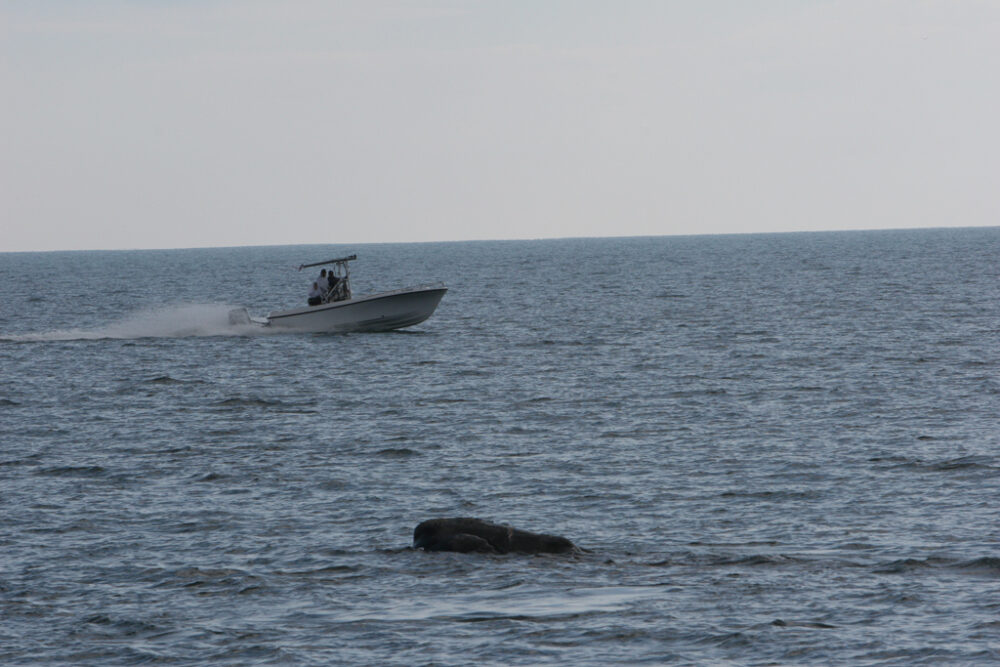
 Federal officials have been working on a new rule.
Federal officials have been working on a new rule.One of the next paths for improving North Atlantic right whale conservation in the Southeastern calving grounds is going to affect a lot of folks who live and like to visit Northeast Florida — speed restrictions on recreational vessels.
“Right now, any vessels under 65 feet — this is kind of the group that we’re targeting, 30-, 40-, 50-foot, ocean-going recreational boats and charter captains and such — their speeds aren’t regulated,” said Clay George, a wildlife biologist for the Georgia Department of Natural Resources (Georgia DNR).
George made the comments at this week’s meeting of the North Atlantic Right Whale Southeast Implementation Team (SEIT). The SEIT is a federal and state interagency group that includes representatives from Georgia DNR, the Florida Fish & Wildlife Conservation Commission (FWC), the National Oceanic and Atmospheric Administration (NOAA), along with other agencies and institutes.
“At this point, we’re trying to reach out to (boaters) and encourage them to voluntarily reduce their boat speeds,” George said.
Part of this is spurred from the last recreational vessel strike in February 2021, when the About Time, a 54-foot recreational vessel, slammed into a North Atlantic right whale calf at 20 knots, half a mile off St. Augustine Inlet.
“I never had a clear visual when impact happened,” Capt. Shane Ryan said in his sworn statement to the FWC. “I was looking out the rear and suddenly the boat struck something, and we suddenly stopped not to 100% stop, but about 75%. I slid forward and then got up as (the) boat came to a stop.”
He said there was a thud as the stern lifted, “(e)ngines turned off and alarms going off.”
The calf breached under the vessel on the starboard side, jamming the boat’s prop and strut into the hull. Ryan had to beach the About Time to keep it from sinking.
Spotters later saw the calf’s mother, Infinity, with vessel strike wounds.
“She has not been seen since that February 2021 sighting, even though she tends to be a whale that’s sighted by monitoring platforms in Northeast habitats,” said Melanie White, right whale conservation project manager for the Clearwater Marine Aquarium Institute.
Federal officials have been working on a new rule for small vessels in areas with North Atlantic right whales, but it has yet to be released.
“NOAA has a vessel speed rule that we’ll hopefully be seeing in the next year or so, and it’s entirely possible that some of those boats will be regulated after that goes through,” George said.
Until then, he said FWC, Georgia DNR and NOAA would be working together to get the word to as many boaters as possible so they can go slower and keep an eye out for right whales during calving season.


The large-vessel speed restriction has worked well to reduce the number of strikes to Atlantic right whales. This small-vessel speed restriction will help save the 350 or so right whales left in existence. We should also be instituting ropeless crab and lobster pots up north in order to cut down on entanglements, which is the current cause of most injuries and deaths to right whales.
This is a very good thing – and a life saving thing. From NOAA Fisheries…
https://www.fisheries.noaa.gov/feature-story/all-boaters-should-reduce-their-speed-protect-north-atlantic-right-whales